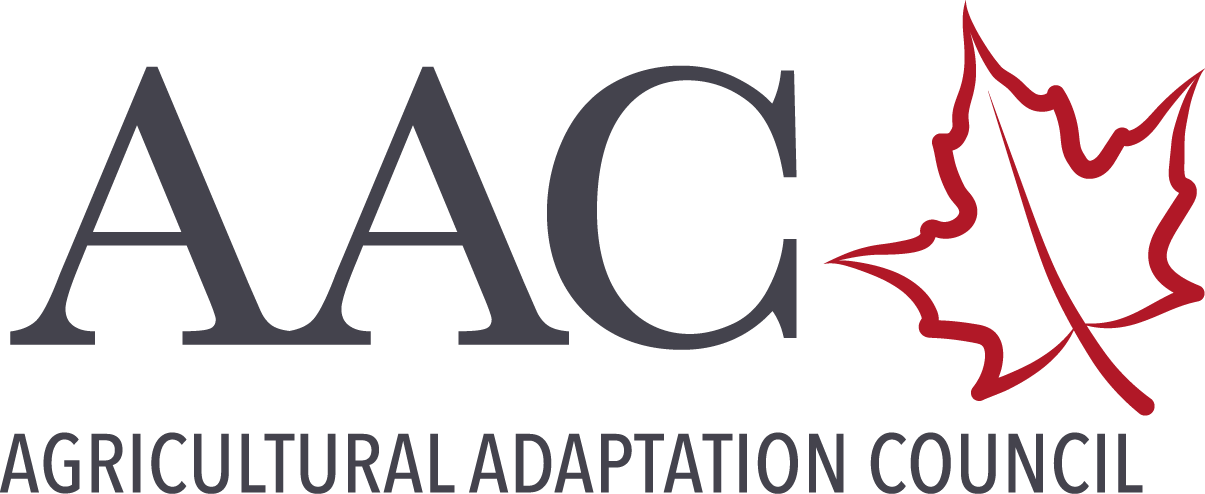
Ontario agri-food leaders kick-off process to shape resilient food system Agri-Food 2050 participants identify priorities, key levers of change
Guelph, ON – [06 October 2025] – The Agricultural Adaptation Council (AAC) brought together leaders from across Ontario’s agri-food value chain in Niagara Falls recently for the first-ever Agri-Food 2050 event. It marked the kick-off of a process to prepare the sector for the challenges and opportunities ahead and what it will take to shape a sustainable, resilient, and prosperous food system over the next 25 years.
About 125 participants – representing government, academic and research institutions, farm and commodity groups, processors, agribusiness, tech entrepreneurs and rural organizations and students– gathered for a day of challenging assumptions and establishing priorities through interactive breakout sessions and panel discussions.
The day ended with several successful outcomes:
- Recognition of the need for cross-industry collaboration to build a long-term, sector-wide plan.
- Industry support of the process and strong interest in continued engagement and participation.
- Creation of a space and a process, led by AAC, for ongoing stakeholder engagement.
“The widespread enthusiasm and desire to participate in the process to craft the future vision of the sector that we experienced at Agri-Food 2050 was inspiring,” says Ruth Knight, Chair of Agri-Food 2050 Committee. “Fueled by the positive energy in the room, we’re now busy digesting what we heard and how that can evolve into next steps on this path toward a healthy, resilient food system for Ontario by 2050.”
Interactive event polling showed that sustainability, resilience, and collaboration are central to the sector’s future, and a unified, strategic voice is needed to bring priorities together. Urgent cross-sectoral issues include labour shortages, climate impacts, access to capital, and the role of artificial intelligence (AI) and innovation.
Using an AI bot to analyze breakout session reports in real time, participants identified four broad areas with the greatest potential to drive meaningful change across economics, environment, policy, and innovation:
- Access to capital and land: financing models for young and diverse farmers.
- Perception shift and public narrative: rebranding agriculture as high-skilled and innovative.
- Policy proactivity and food sovereignty: strengthening Canadian agri-food as a strategic asset.
- Value chain resilience and localization: building local production and processing capacity.
“We are thrilled with the buy-in from across the industry. Agri-Food 2050 will require ongoing support to maintain a space where the sector can set its course,” adds Melanie DiReto, AAC Executive Director. “AAC, with its 30-year track record of working collaboratively across the sector, is the right partner to guide this process, and we are committed to providing the resources, expertise and leadership needed to make it happen.”
A report summarizing the day’s discussions along with recommendations for next steps in the process will be released later this fall.
Keynote speaker Jesse Hirsh challenged participants to imagine what success could look like in 2050, followed by breakout sessions that explored economics, social factors, climate change, and innovation and technology.
The event wrapped up with a panel discussion featuring Rene Van Acker, President of the University of Guelph; Dana McCauley, CEO of the Canadian Food Innovation Network; and consultant Michael Keegan, who each reflected on how the sector can build on the day’s momentum.
Sponsors included Farm Credit Canada, University of Guelph, Toronto Metropolitan University’s Rogers Cybersecure Catalyst, the Canadian Agricultural Human Resource Council, Agricultural Research and Innovation Ontario, MacGregor Marketing and Communications, Conservation Ontario, Ontario Harness Horse Association, and 4-H Ontario.
About the Agricultural Adaptation Council
The Agricultural Adaptation Council is an industry-led, not-for-profit organization that drives collaboration and supports innovation across Ontario’s agri‑food sector. AAC has delivered more than $338 million in funding and supported over 4,300 projects since its inception in 1995, with a proven track record of connecting ideas, people, and programs that strengthen agriculture and food in Ontario.
-30-
Media contact:
Peter Katona, Communications Manager
Agricultural Adaptation Council
adaptcouncil.org | @adaptcouncil | 1 (800) 769-3272 Ext. 204 | pkatona@adaptcouncil.org







